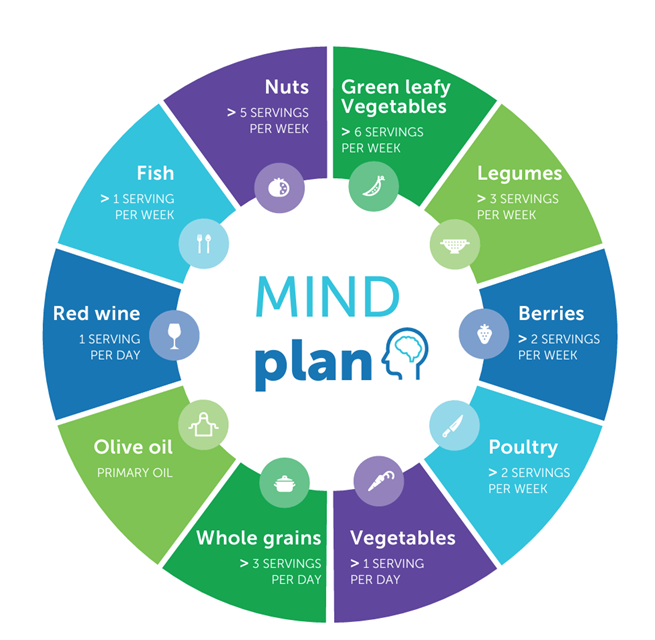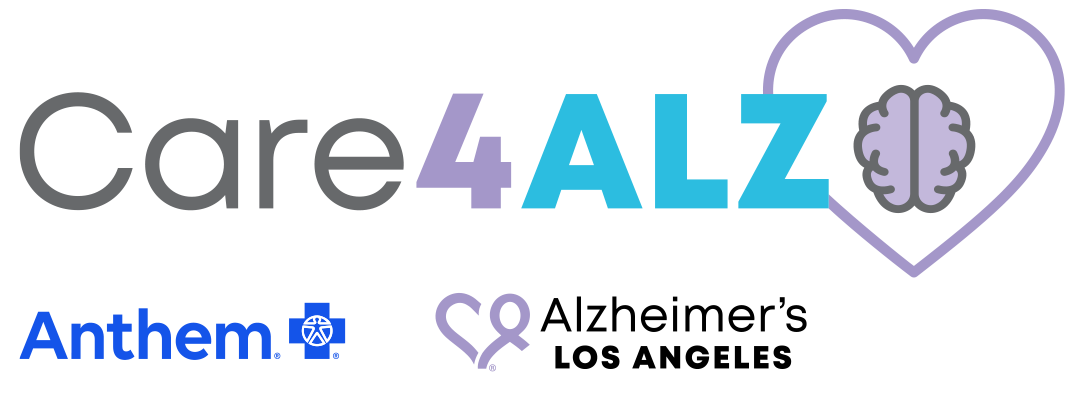The brain is very active and needs healthy food to work well. Vitamins, proteins, and minerals from food give the brain and body energy. If we don’t eat healthy, we won’t be healthy. As the saying goes, “You are what you eat.”
Sadly, the typical American diet doesn’t have enough brain-healthy nutrients and uses a lot of processed foods with artificial colors, additives, flavorings, altered fats, and sweeteners. Eating like this is bad for our brains and our bodies.
Many people take vitamins, but it’s usually best to get nutrients directly from natural food. Research shows that foods in the MIND nutrition plan help keep your brain and body healthy.
Eating Brain Healthy-Foods:
- Gives you more energy to do the things you want to do
- Helps improve your memory and thinking
- Protects your heart and brain
- Lowers your risk for high blood pressure, diabetes, stroke, Alzheimer’s disease, and other problems that affect brain health
- Keeps you looking and feeling your best
The brain is very active and needs healthy food to work well. Vitamins, proteins, and minerals from food give the brain and body energy. If we don’t eat healthy, we won’t be healthy. As the saying goes, “You are what you eat.”
Sadly, the typical American diet doesn’t have enough brain-healthy nutrients and uses a lot of processed foods with artificial colors, additives, flavorings, altered fats, and sweeteners. Eating like this is bad for our brains and our bodies.
Many people take vitamins, but it’s usually best to get nutrients directly from natural food. Research shows that foods in the MIND nutrition plan help keep your brain and body healthy.
Eating Brain Healthy-Foods:
- Gives you more energy to do the things you want to do
- Helps improve your memory and thinking
- Protects your heart and brain
- Lowers your risk for high blood pressure, diabetes, stroke, Alzheimer’s disease, and other problems that affect brain health
- Keeps you looking and feeling your best
MIND stands for Mediterranean-DASH Intervention for Neurodegenerative Delay. MIND takes the most brain-healthy foods from two popular nutrition plans, Mediterranean and DASH (Dietary Approach to Stop Hypertension). Both nutrition plans help lower blood pressure and reduce the risk of heart disease, memory and thinking changes, and diabetes, if you follow them closely.
MIND is great for the brain. The foods in the MIND plan help keep our brain and heart healthy. MIND foods have strong antioxidant and anti-inflammatory effects, which help slow down loss of brain function as we age.
If you can’t eat the recommended servings of these brain-healthy foods every day, don’t give up. Just do what you can to add more of these brain-healthy foods to your weekly menu.

Graphic Source/Credit: NeuroWell: A Guide to Brain Health and Living Well with Mild Cognitive Impairment (MCI) and Dementia
Breakfast examples
- Greek yogurt with berries, walnuts and pepitas or sunflower seeds
- Oatmeal with raisins, walnuts, and apple pieces
- Shakshouka: poached eggs in tomato sauce, olive oil, peppers, onion, garlic, cumin, paprika, cayenne pepper
- Eggs or egg whites in tomatillo sauce with beans and corn or whole-wheat tortillas
Lunch examples
- Greek salad with grilled chicken
- Tuna or turkey sandwich on whole wheat bread with tomato and olive oil mayo with hummus & baby carrots or red peppers on the side
- Lentil or vegetable soup
- Grilled chicken wrap (whole wheat tortilla) with beans, corn, salsa, and avocado
Dinner examples
- Chicken or vegetable curry or stew over brown rice or quinoa
- Fish (trout or salmon) or shrimp tacos with cabbage, salsa, beans, peppers, and avocado (whole wheat or corn tortillas)
- Grilled salmon with Brussels sprouts or broccoli (roasted in olive oil) over brown rice or quinoa
- Mediterranean pizza with whole wheat or cauliflower crust, topped with feta cheese, vegetables, and olives
Dessert examples
- Fruit salad
- Fresh blueberries over an olive cake
- Frozen yogurt with fruit
Other Brain and Heart-Healthy Eating Tips

Spice Up Your Meals
- Add some curcumin or turmeric, an East-Indian herb used in curry or stew. This super spice is a strong antioxidant and anti-inflammatory spice that supports brain health. Its mild taste makes it easy to sprinkle on almost any dish.
- Fresh and dried herbs and spices, like garlic, basil, mint, rosemary, sage, nutmeg, cinnamon, curry powder, and pepper are all healthy spices. Garlic is packed with important heart-healthy vitamins. Use these instead of salt, when possible.

Eat More Mediterranean Foods
In addition to the MIND foods, Mediterranean foods are also very brain and heart healthy.
- Fruits: berries, apples, oranges, pears, dates, figs, melon, peaches, apricots, and bananas.
- Seafood: In addition to fish, eat shrimp, oysters, clams, crab and mussels.
- Nuts and Seeds: Walnuts, almonds, macadamia nuts, hazelnuts, cashews, sunflower seeds, and pumpkin seeds (pepitas)
- Dairy: Greek yogurt, parmesan and feta cheeses, and eggs (or egg whites)

Drink Lots of Water
Make water your go-to drink. Try to drink eight, eight-oz glasses of water every day.
SOME THINGS YOU CAN TRY
Helpful Resources
MIND Books
- "The Official MIND Diet: A Scientifically Based Program to Lose Weight and Prevent Alzheimer’s Disease," by Dr. Martha Clare Morris
- "The MIND Diet Plan and Cookbook: Recipies and Lifestyle Guidelines to Help Prevent Alzheimer’s and Dementia," by Julie Andrews, MS, RDN, CD
- "MIND Diet for Beginners: 85 Recipes and a 7-Day Kickstart Plan to Boost Your Brain Health," by Kelli McGrane, MS, RD

